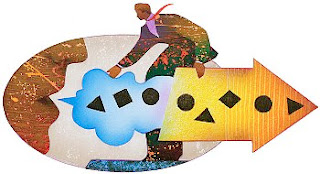Today is 2 years from the day when my father dead.. and today the day when the part of my heart dead with him… and today is the day when my heart and soul reborn and recover…
I don’t know how to consider today – good ot bad day for me, but its exactly true that this is important day…
I saw a lot of people who met death. And becouse of my profession I was supposed to help them to recover and go over death of beloved people.. I know a lot of theory about stages through which we go when we recover and I used this theory a lot to help other people… But unfortunatly this theory has nothing to do with self-help…
My father is the person who really taught me how to feel.. Not becouse he explained me something, but becouse he created atmosphere for me where was a lot of feelings..Different feelings.. Deep feelings…
I felt respected.. He always treated me as a person who has right to be equal to him – he asked my opinion, he trusted me, and even if he knew that I lied to him or tried to hide something – he never blame me – always gave me chance to make my own decisions how to behave in this situations…
I felt loved… I am not one of his children, but I feel that I really beloved one.. He showed me different sides of love: love-acceptance, love-hate, love-tenderness and love-care… It was the feeling he was really master to produce, but unfortunatly it was the feeling which it was most difficult for him to feel. And even after his death he showed me how different could love be:
One of his principles was cleaned shoes. He always told me that shoes should be cleaned and cared. But in the same time he also taught me that it should be task of the man in the family – to take care of shoes. He taught me how to clean it, but never allowed me to do it. He did it for all our family by himself.
And in the day of his death, after everything happened and we started to pack things to use for funeral, we found his shoes cleaned, prepared and shined.. He felt that he would die soon.. . And even in this last moments he thought about us – women of his family – not to do job he was sure woman should not do…
Imagine, how he were caring me: In the day when I went to hospital becouse his doctor told me that he should tell me something , he caught me in front of the doctor’s door and said: “Elena.. most probably they will tell you that I have cancer. I stole my medicine book and I saw its written there.. Please, don’t worry – I already know everything..”
I feel guilty.. I always think I could have done do more to help him to fight with his disease.. I feel guilty that he was so strong not to put all his fears, tears and pain on my shoulders… and till last days did almost everything by himself…
I feel guilty that I was not with him in his last moments..
I feel shame.. I feel shame that I was so afraid to be with him during last days and to see his unhelpness that I could not hold his hand even if I wanted to do it the most of all…
For last 2 years I felt sadness… deep sadness… I even can admitt that I have been depressed for all this time… sadness – its attempt to suppress pain, not to feel it.. and its only illusion that its possible to avoid pain..
I read somewhere that depression is a trance.. I was in trance.. I did the same things, repeated it all day, month and even years…. And as I also learn – that to quit trance you should do something… and most important – something new…
And I started doing new things and set goals… I dedicated my speech at European Public Speaking Competion to my father.. and I know I was good in it. I promised him to get Award as Most Outstanding Trainer – and I got it. I decided to start finally actively work with my Emotional Intelligence topic – and I went to USA for conference, started my blog, print articles… I started doing new things and finally I can say that today, 19 of October 2010 I quit sadness…
My Dear Father, as always in my childhood, you set high goals for me, you taught me how not to give up and do everything to achieve dreams. The same you are doing for me after your death – you make me move forward, keep living full life and remember about priorities of my life!
I always feel your support, love and help..
And through my tears, mix of feelings and pain I say “I love you” as I never loved anyone in my life…. As Daughter loves Father,
and as only my heart can love…






